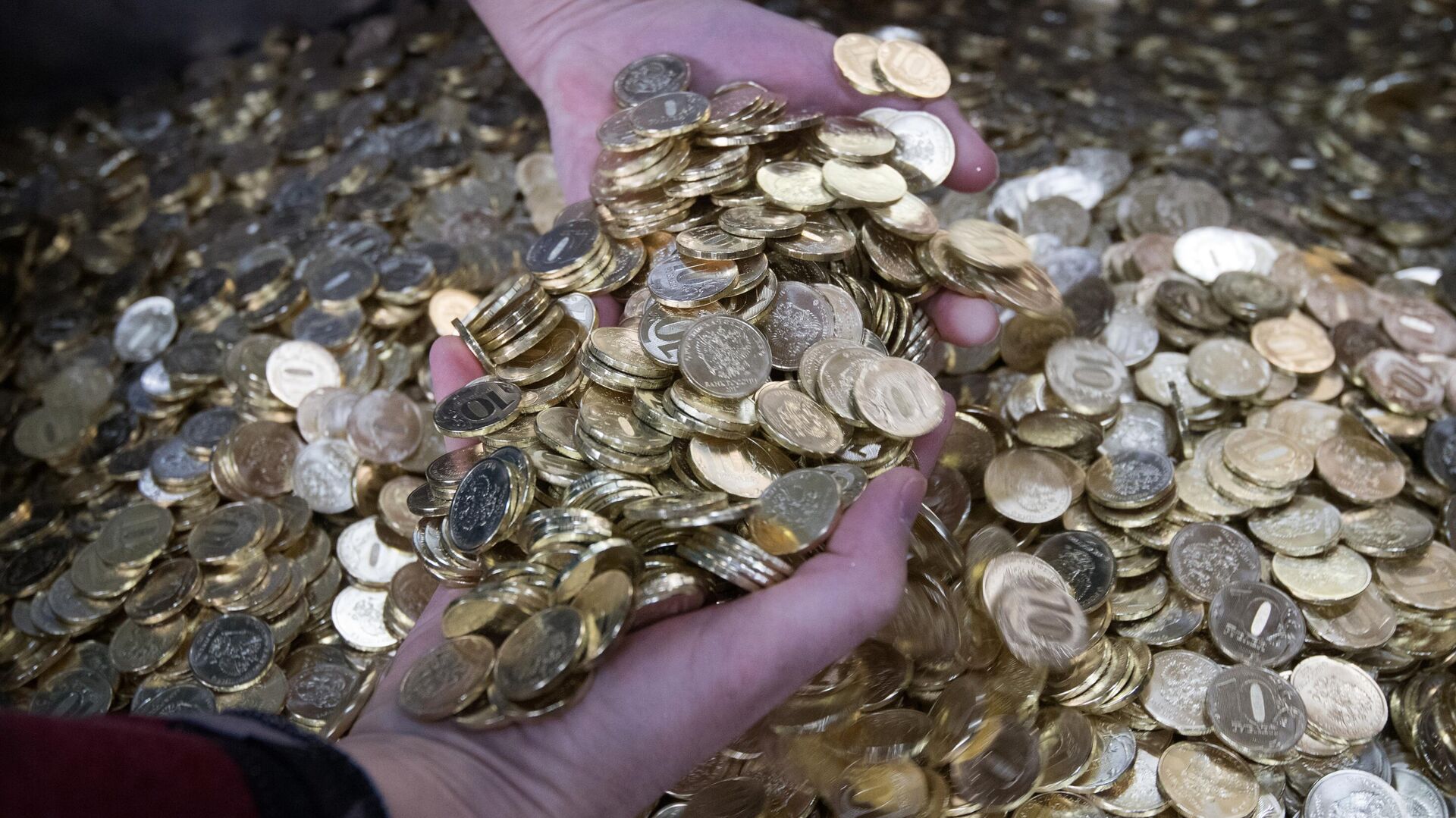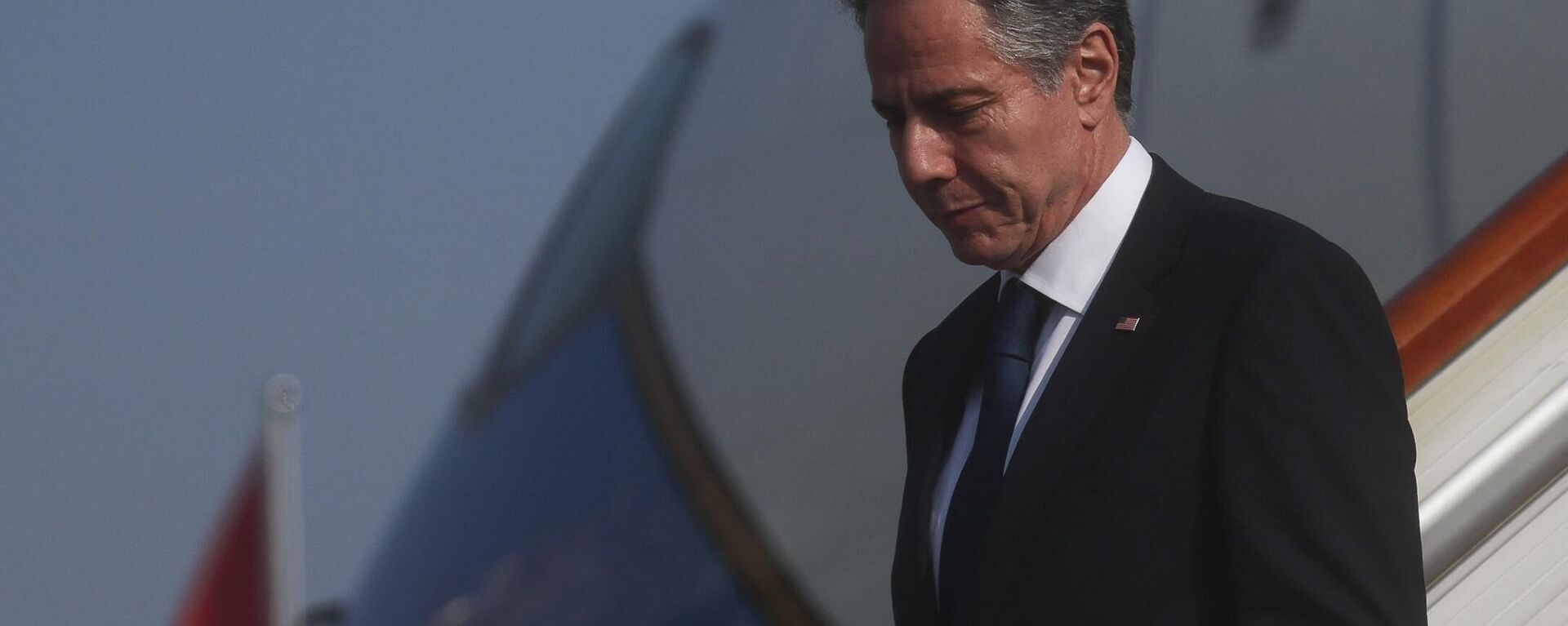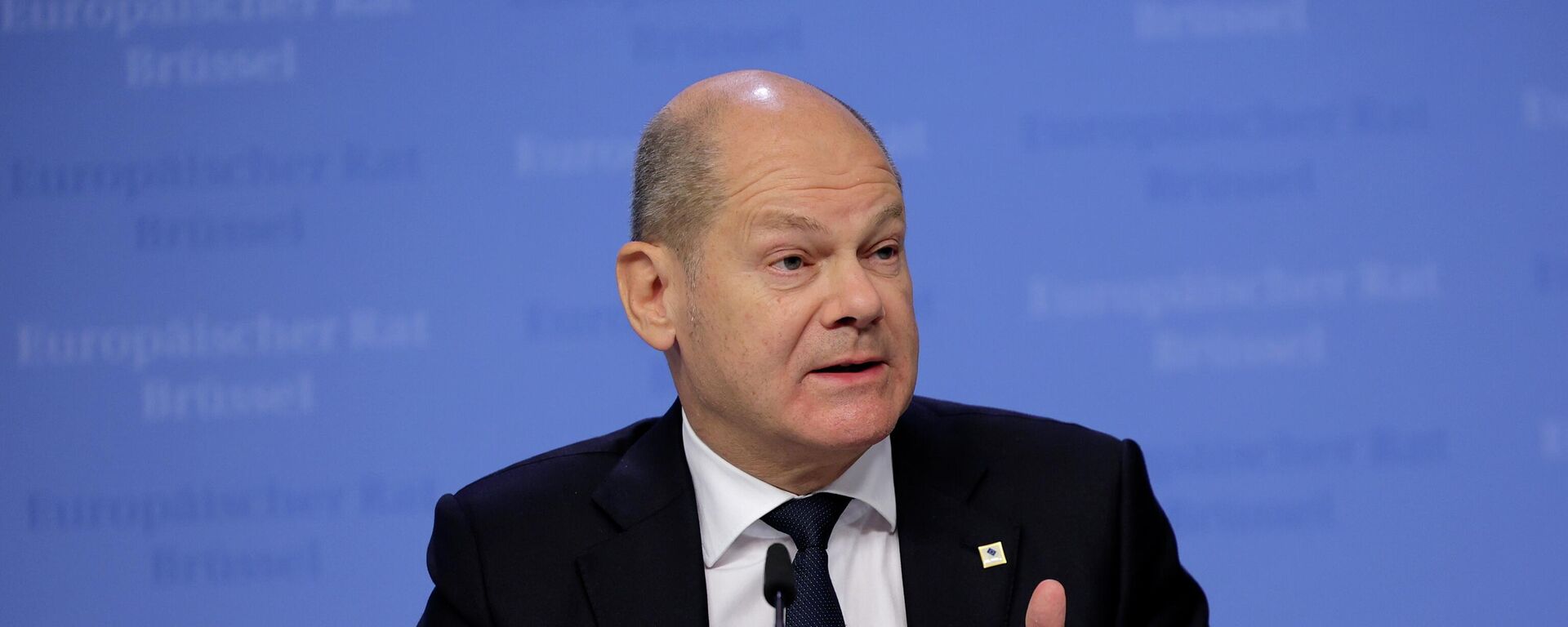https://sputnikglobe.com/20230917/eu-mulls-siphoning-profits-from-billions-of-illegally-frozen-russian-assets-1113436313.html
EU Mulls 'Siphoning Profits' From Billions of Illegally Frozen Russian Assets
EU Mulls 'Siphoning Profits' From Billions of Illegally Frozen Russian Assets
Sputnik International
Last year, European Commission President Ursula von der Leyen proposed setting up a special structure to manage the frozen private and Russian Central Bank assets to “support Ukraine.” Moscow has repeatedly warned that attempts to confiscate frozen Russian assets are an expropriation of property in violation of international law.
2023-09-17T14:39+0000
2023-09-17T14:39+0000
2023-09-17T14:50+0000
russia
ursula von der leyen
european union (eu)
european commission
russian central bank
sanctions
frozen assets
economy
https://cdn1.img.sputnikglobe.com/img/07e7/09/11/1113436948_0:195:2950:1854_1920x0_80_0_0_9487723bdb0ddf472d20fa1850268127.jpg
European Union officials are reportedly drumming up a plan to siphon off profits accrued by more than €200 billion ($215 billion) of illegally frozen Russian Central Bank assets.The bloc’s plan, according to a draft paper cited by a US media outlet, is to impose a windfall tax on profits generated by the aforementioned assets, and funnel the money into the EU budget. The European Commission is gearing up for a meeting on the issue with officials from France, Germany, Spain, Belgium, and Italy on September 21, and after that will discuss the plan with all member states, sources were cited as saying.A working group formed by the commission has ostensibly argued the need to follow a step-by-step implementation of the three key proposals contained in the draft paper.These steps, as per the report, are as follows:As for the estimated windfall profits from Russian Central Bank assets frozen in the EU, they are estimated to generate around €3 billion ($3.202 billion). It was previously reported that over 50 percent of the assets are in cash and deposits. A “substantial amount” of the remaining sum is in securities, the report added.For example, the frozen Russian assets that are located at Euroclear Ltd., a Belgium-based financial services company, had generated close to €750 million by the first quarter of this year.However, several countries have purportedly voiced concerns that using proceeds from the frozen Russian assets could prompt official reserve holders to “turn their back on the euro,” added the report.‘Costly’ & 'Questionable' Legal BattleWhile several Western nations have proposed seizing Russian assets in foreign banks, which were frozen at the start of the conflict as a retaliatory measure, and using them to finance the reconstruction effort in Ukraine, experts told Sputnik that the legality of such a move is questionable. Doing so would “induce an extremely long and costly legal procedure."In a ministerial meeting in the spring, the G7 reportedly discussed ways to send Russian assets seized abroad to Ukraine, with a source familiar with discussions saying “legal complexities” and “domestic restrictions” were making it difficult for the money to be transferred.Moscow has repeatedly stated that it is impossible for the West to justify the freezing of Russian assets under accepted conventions of international law. “No matter how you look at it, all their actions still look illegal,” Kremlin spokesman Dmitry Peskov told reporters earlier in the year, adding that Russia would do everything possible to return the seized assets.
https://sputnikglobe.com/20230621/long-costly-legal-battle-awaits-attempt-to-seize-frozen-russian-assets-for-ukraine-reconstruction-1111370843.html
https://sputnikglobe.com/20230626/germany-opposes-use-of-russian-frozen-assets-for-ukraines-rebuilding-1111468802.html
russia
Sputnik International
feedback@sputniknews.com
+74956456601
MIA „Rossiya Segodnya“
2023
News
en_EN
Sputnik International
feedback@sputniknews.com
+74956456601
MIA „Rossiya Segodnya“
Sputnik International
feedback@sputniknews.com
+74956456601
MIA „Rossiya Segodnya“
russia's frozen assets, profits from russian frozen assets, eu budget, russian central bank assets
russia's frozen assets, profits from russian frozen assets, eu budget, russian central bank assets
EU Mulls 'Siphoning Profits' From Billions of Illegally Frozen Russian Assets
14:39 GMT 17.09.2023 (Updated: 14:50 GMT 17.09.2023) Last year, European Commission President Ursula von der Leyen proposed setting up a special structure to manage the frozen private and Russian Central Bank assets to “support Ukraine.” Moscow has repeatedly warned that attempts to confiscate frozen Russian assets are an expropriation of property in violation of international law.
European Union officials are reportedly drumming up a plan to siphon off profits accrued by more than €200 billion ($215 billion) of
illegally frozen Russian Central Bank assets.
The bloc’s plan, according to a draft paper cited by a US media outlet, is to impose a windfall tax on profits generated by the aforementioned assets, and funnel the money into the EU budget. The European Commission is gearing up for a meeting on the issue with officials from France, Germany, Spain, Belgium, and Italy on September 21, and after that will discuss the plan with all member states, sources were cited as saying.
A working group formed by the commission has ostensibly argued the need to follow a step-by-step implementation of the three key proposals contained in the draft paper.
These steps, as per the report, are as follows:
Clarifying the scope of duties of the financial obligations involved.
Setting in place requirements for central securities depositories to separate cash balances of the Russian assets.
Transferring revenues to the EU’s budget as "external assigned revenues."
As for the estimated windfall profits from Russian Central Bank assets frozen in the EU, they are estimated to generate around €3 billion ($3.202 billion). It was previously reported that over 50 percent of the assets are in cash and deposits. A “substantial amount” of the remaining sum is in securities, the report added.
For example, the
frozen Russian assets that are located at Euroclear Ltd., a Belgium-based financial services company, had generated close to €750 million by the first quarter of this year.
However, several countries have purportedly voiced concerns that using proceeds from the frozen Russian assets could prompt official reserve holders to “turn their back on the euro,” added the report.
After Russia launched its special military operation in Ukraine on February 24, 2022 in response to calls from the Donbass republics of Donetsk and Lugansk for help in countering intensifying attacks by Ukrainian troops, the US and its allies rolled out sweeping sanctions targeting Moscow. Hundreds of billions of dollars in Russian assets were trapped in the West as a result.
‘Costly’ & 'Questionable' Legal Battle
While several Western nations have proposed seizing Russian assets in foreign banks, which were frozen at the start of the conflict as a retaliatory measure, and using them to finance the reconstruction effort in Ukraine, experts
told Sputnik that the legality of such a move is questionable. Doing so would “
induce an extremely long and costly legal procedure."
In a ministerial meeting in the spring, the G7
reportedly discussed ways to send Russian assets seized abroad to Ukraine, with a source familiar with discussions saying “
legal complexities” and “
domestic restrictions” were making it difficult for the money to be transferred.
Moscow has repeatedly stated that it is impossible for the West to justify the freezing of Russian assets under accepted conventions of international law. “
No matter how you look at it, all their actions still look illegal,” Kremlin spokesman Dmitry Peskov
told reporters earlier in the year, adding that Russia would do everything possible to return the seized assets.




